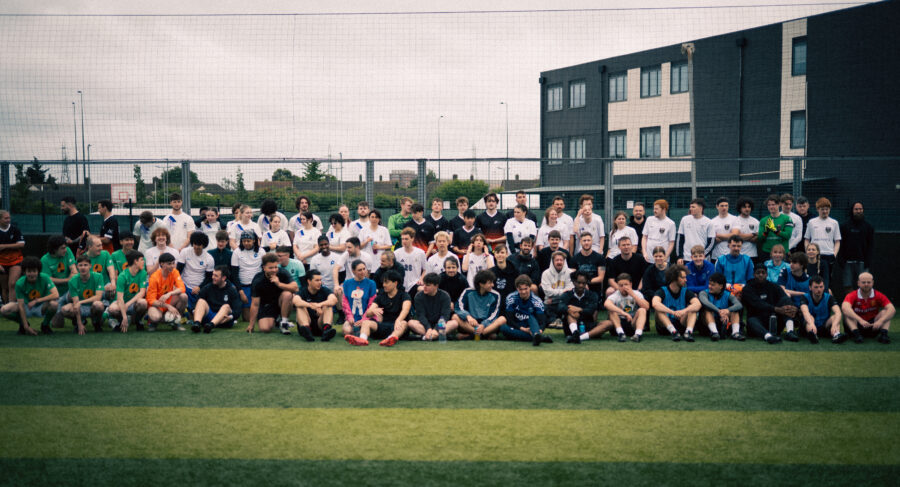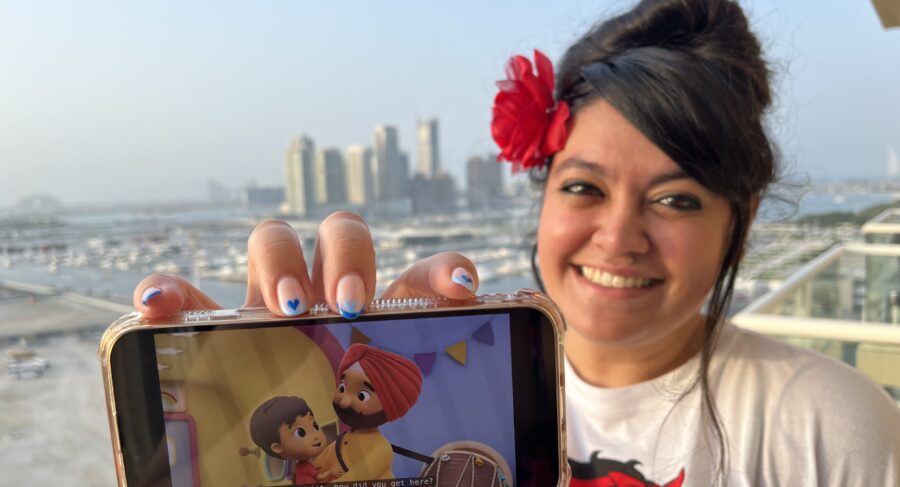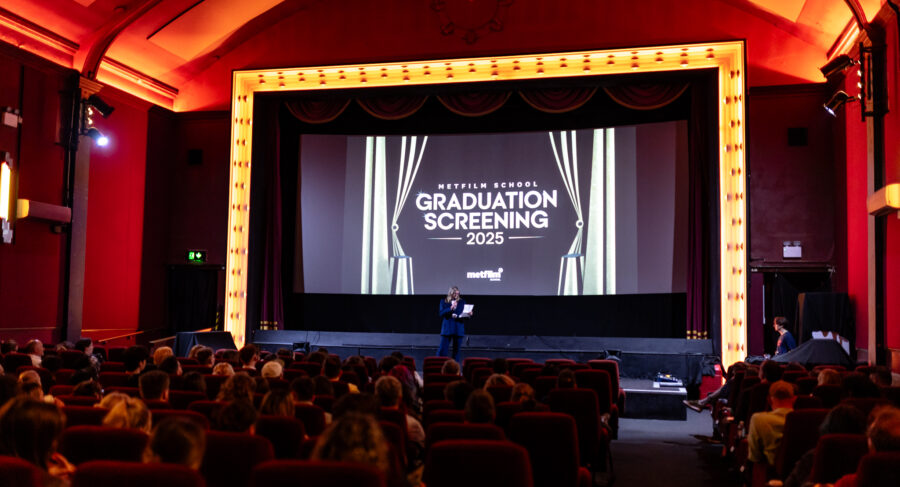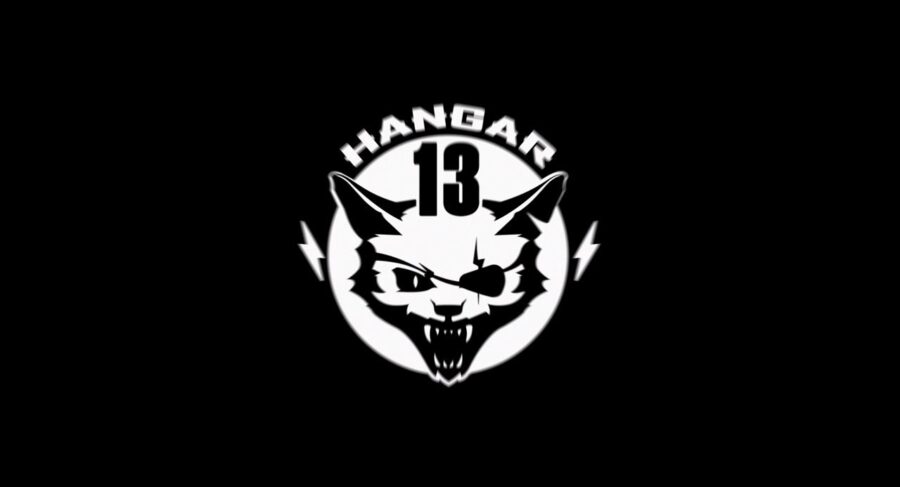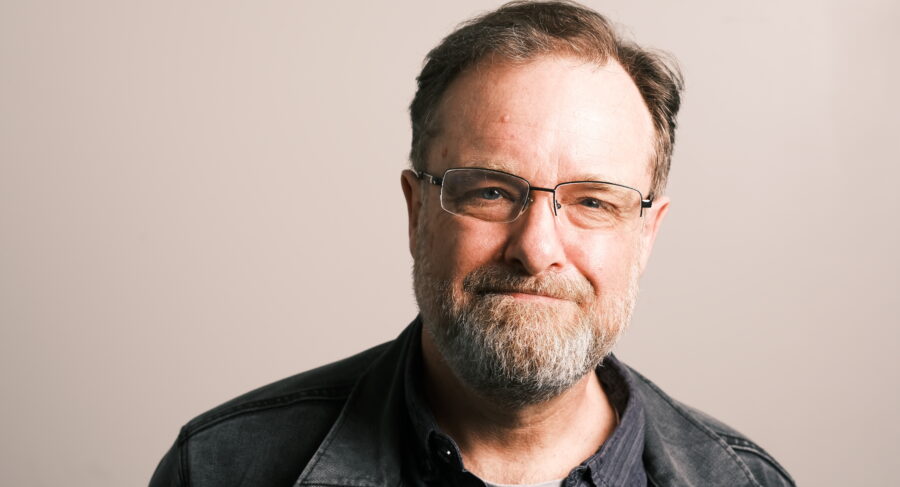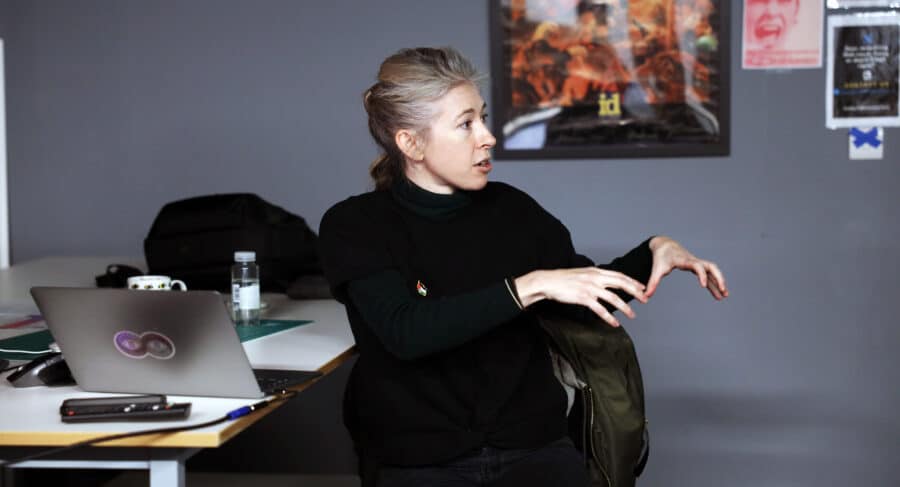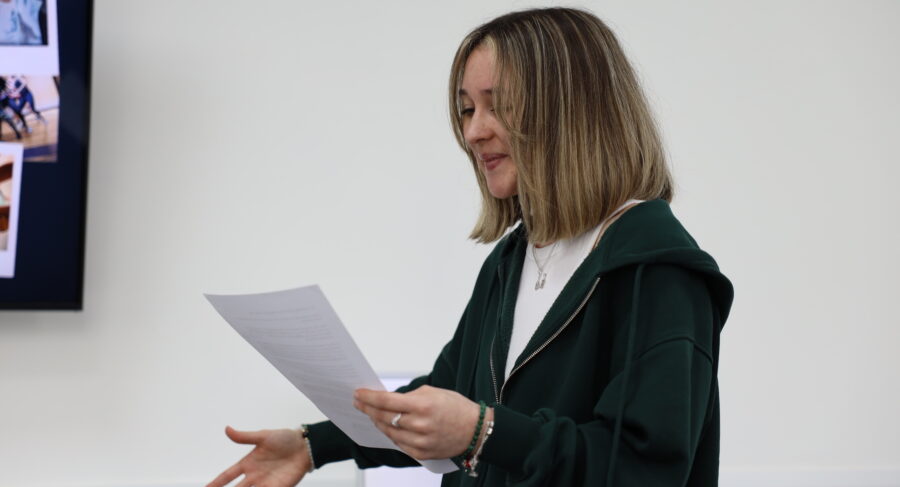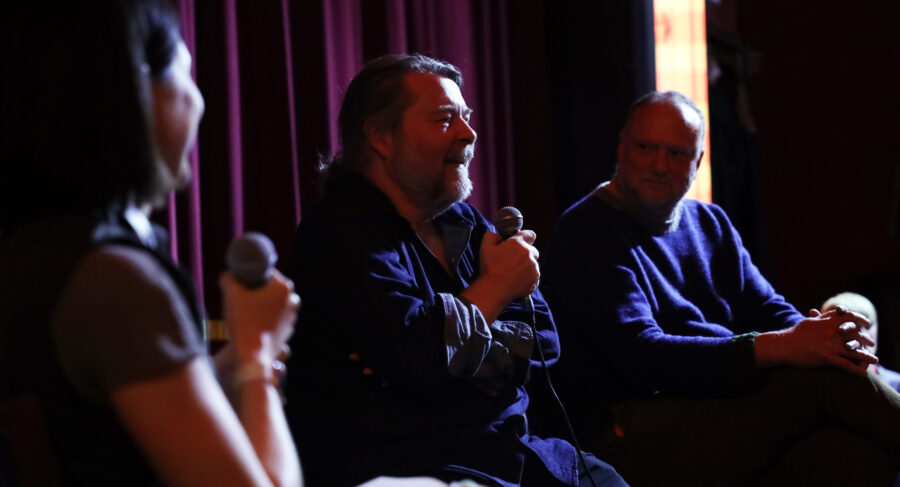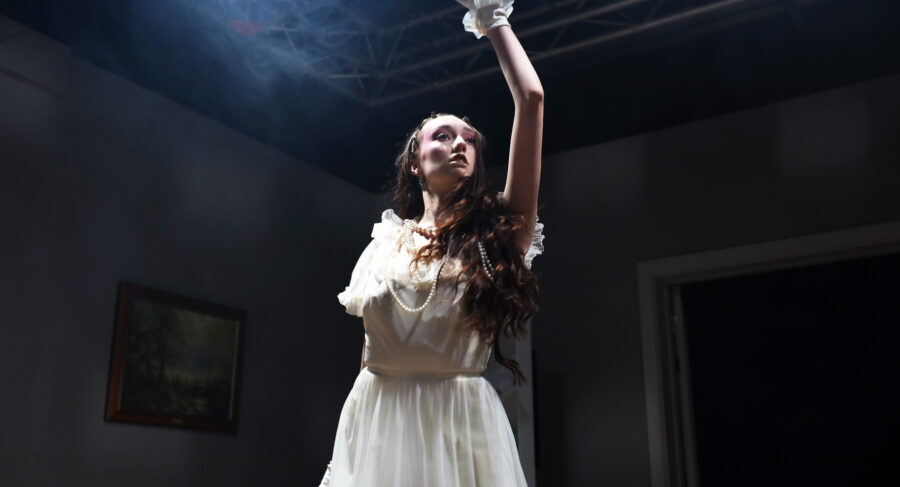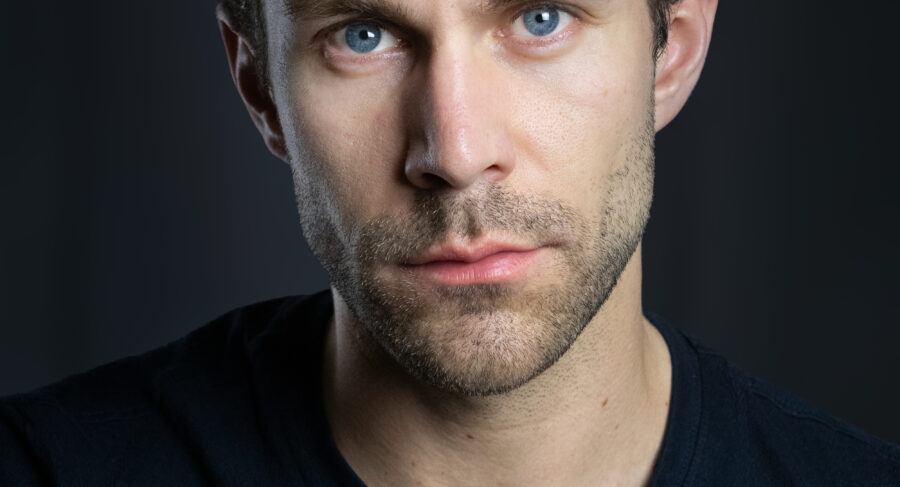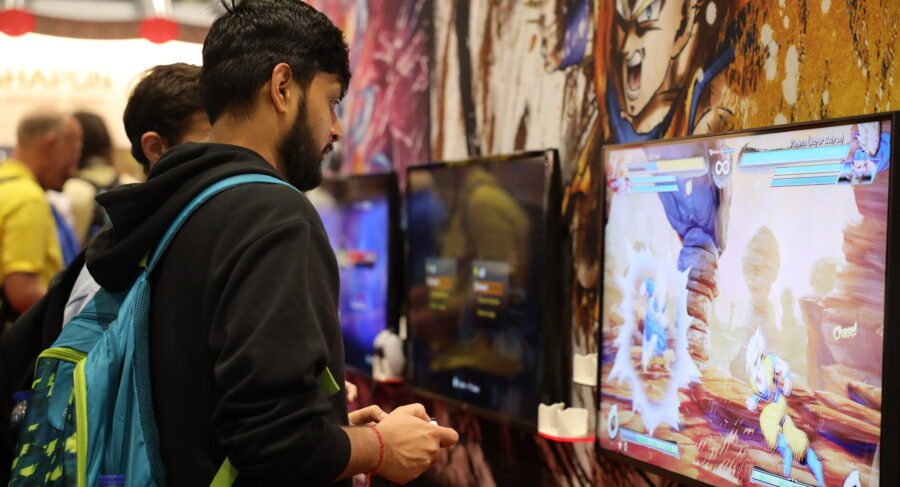Nasreen Hajat (MA Screenwriting) on short film ‘Mia’ and Diversity & Inclusion at ITV
By Elise Czyzowska
04 May 2023
MA Screenwriting graduate Nasreen Hajat has always had a passion for writing – from poetry, to creative writing (which she studied for her undergraduate), to her time on MA Screenwriting at our London campus. ‘I simply enjoy the sense of community and intimacy that comes from telling and receiving stories’, she explained – and this passion shone through when we caught up with her recently.
For her Master’s Project, Nasreen wrote the script for Emma Koch’s Mia, a Belgian War story which won Best Short Film at the January 2023 Lift-Off Filmmakers Session. Alongside this success, she has also started a new job at ITV as Diversity and Inclusion Team Assistant – and in today’s blog, she spoke about how her degree helped prepare her for this role, as well as sharing the top advice she’s learnt from her mentors so far, and giving us a behind-the-scenes look at writing Mia…
What first drew you to the craft of writing?
Throughout my childhood, my favourite part of the week was Saturday evenings, the one day we were allowed to take our dinner to the sofa and get lost in a landslide of British Saturday night television. While this tradition has evolved over time – from squeezing around a laptop at university, to late nights in front of the TV with my housemates, the joy of coming together (or finding time alone), to connect with stories, characters, and worlds, has always remained.
In this way, I’ve always been drawn to writing and storytelling because of its capacity for creating connection. For its ability to unify us, to make us feel seen – and heard. I’m really fascinated by the power that stories have for creating, reshaping, and informing everything we know about the world and ourselves.
How does it feel, for Mia to have been recognised by the Lift-Off Filmmakers Session?
It’s been amazing! I’m so happy for the entire team, who all worked really hard on the project, it’s been great to see their creativity and craft being recognised and celebrated.
It was also great how heavily female-led the film was, which was an important part of the project from the get-go, and is a key element of the types of stories and media I want to push for. To have a short film I wrote not only support the creation of opportunities for intersectional female talent, but then also have us begin to receive positive reception and recognition, was the most special element.
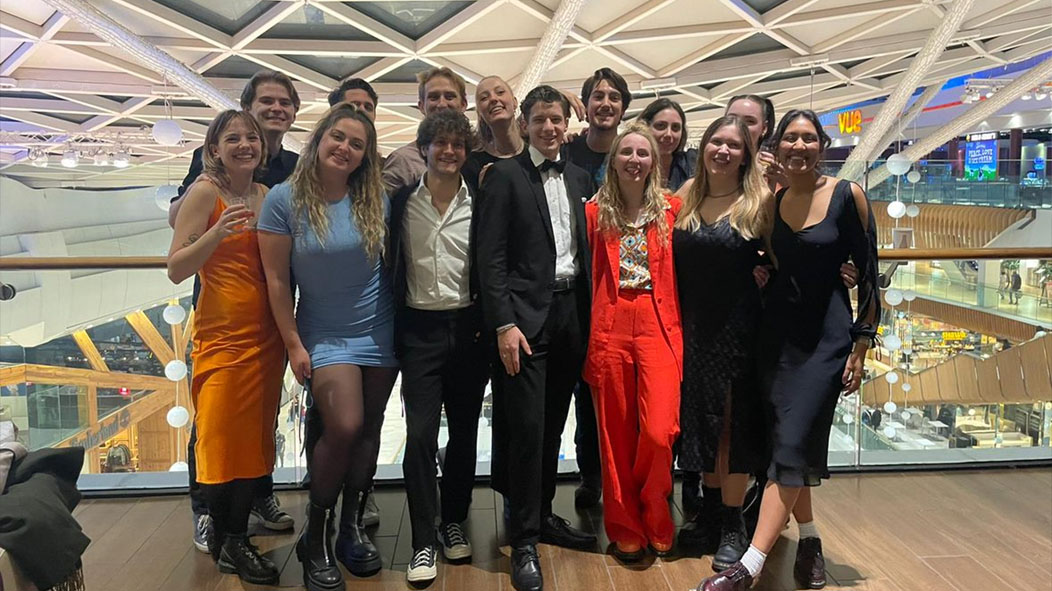
How did the idea for Mia begin?
Fascinatingly, Mia is partially based on Emma’s family history. She has an incredible diary from her grandfather that she deciphered and digitalised in the months leading up to pre-production, as well as a wealth of stories passed down from her grandmother. While the characters and the plot details are fictionalised, the situation – and the relationship of human compassion – is all true.
With this in mind, it was important to me that Mia was an anti-war story, and also that Emma and I could centre the female lens in a genre and story that is predominantly dominated by men. This is why the story started (as it does with most of my writing) with the character, and then it blossomed from there!
Do you have any favourite genres or formats to write for?
During my MA, I was quite open to writing in a variety of genres to help develop my voice, but I’d say that due to my own lived experiences, and my engagement in the Youth Sector prior to pursuing a career in the screen industries, I’m particularly drawn to themes of belonging, identity, race, adolescence, and girlhood in the family/romance drama and coming-of-age genres.
Supporting young people and communities facing challenges like period poverty, homelessness, racial inequality, and mental health conditions has fundamentally charged my ambition to portray diverse and underrepresented voices of adolescence – and to do so with compassion, honesty, and respect.
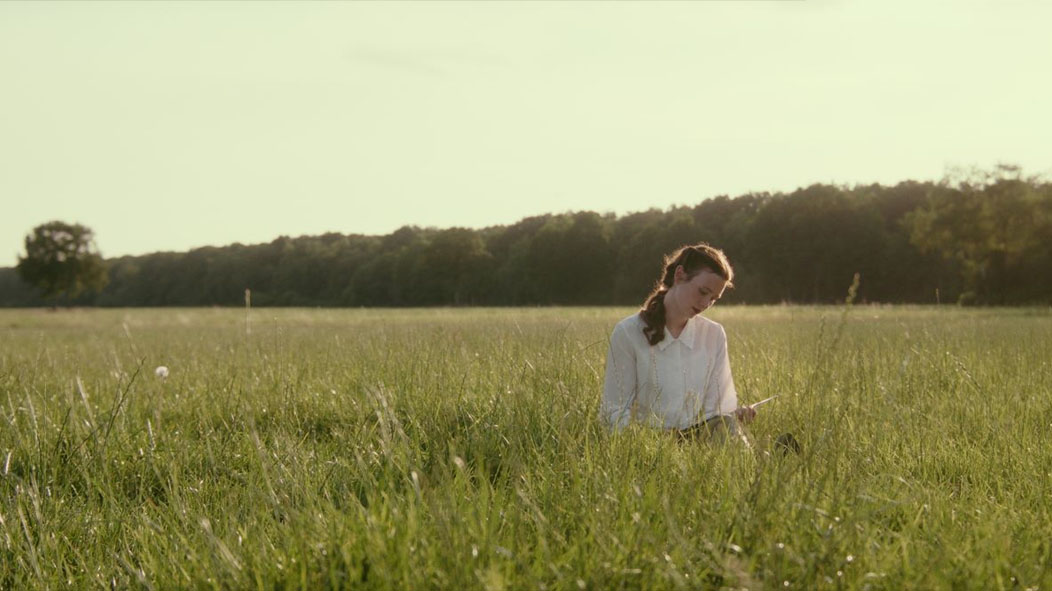
Having joined ITV in January, how are you settling into the role? What does the job entail?
My daily routine and tasks revolve around research, reporting, administration, and communications – but alongside these primary responsibilities, the role, and the space which I’m in, has created many additional (and often spontaneous!) opportunities.
For instance, as I’m neurodivergent myself, I’m currently loving attending the ITV Studios Disabled Writers in Development sessions that our team facilitates, where most recently, the amazing screenwriter and actress Maya Sondhi was the special guest.
The most wonderful part however, is being able to see real, sustainable, and meaningful change taking place. During my second week in the role, I was able to visit the ITV Leeds Studios, to attend a workshop in which the Coronation Street and Emmerdale hair and makeup teams were taught to treat and style Afro, curly, and textured hair. Knowing that this will actively aid the creation of inclusive practices for Black talent off-screen was so refreshing to witness.
How has your knowledge of screenwriting benefitted you in this role?
My time on the MA Screenwriting degree did a fantastic job at developing my understanding and knowledge of the industry through a very practical and ‘current’ lens. That foundation has been incredibly beneficial – even something as simple as industry slang and terminology goes a long way in helping you to acclimatise and settle into work.
Furthermore, a vital element of our D&I work is pushing for stories that haven’t been (or are rarely) told in mainstream media. Having come from an MA space that is absolutely rich in new diverse content, with a desire for progress and structural change, it’s a great reminder of what is currently lacking within the sector, and the direction we want it to head in.
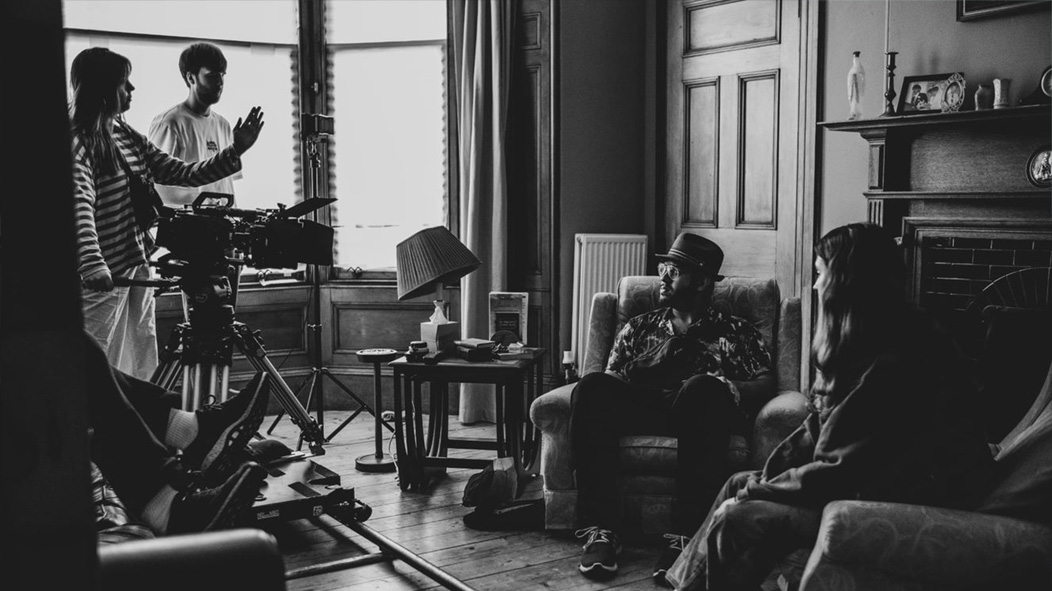
Finally, are there any pieces of industry advice you can share from your experience so far?
I’d say embrace the opportunity for an unconventional pathway! While my current role isn’t directly linked to writing, I’ve found myself (I still can’t quite believe it) with one of the biggest UK broadcasters. This means I’m constantly able to connect with, learn from, and be inspired by both up-and-coming and long-time professional creatives.
As I’d eventually love to write for television, being able to engage with the space from an angle that isn’t writing is teaching me about how broadcasting functions as a whole, and the considerations and awareness I would need to write for it. All of these interactions, as well as working for a company and team that are so supportive of my career development and progression, have been invaluable.
I’d encourage anyone to find this type of space and atmosphere that would work for them, even if it’s not directly linked with the types of roles they’re ultimately looking for.
- Nasreen Hajat studied MA Screenwriting at MetFilm School London. This course is also available in Berlin and Leeds.
- You can watch the trailer for Mia, written by Nasreen Hajat and directed by Emma Koch, here.

